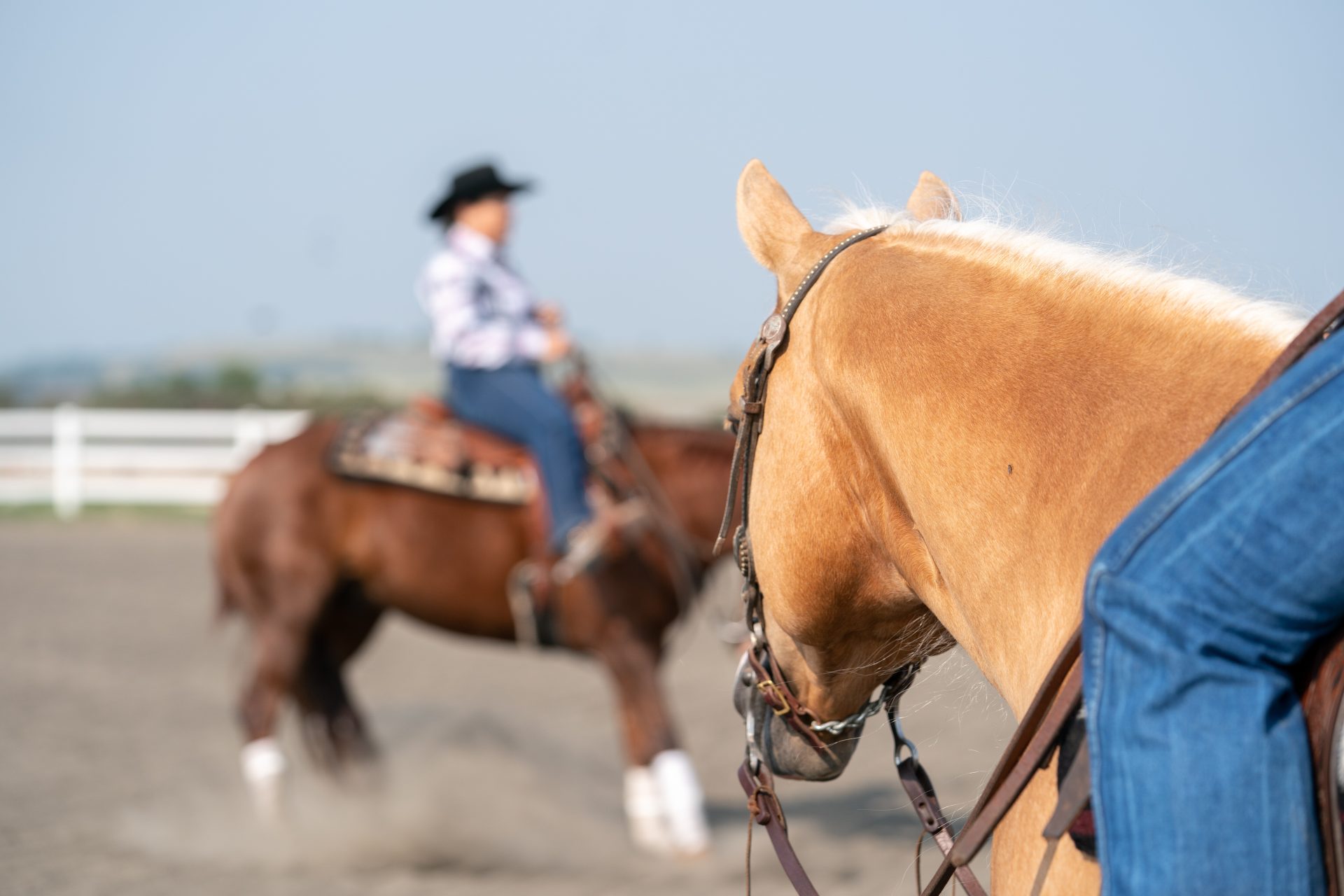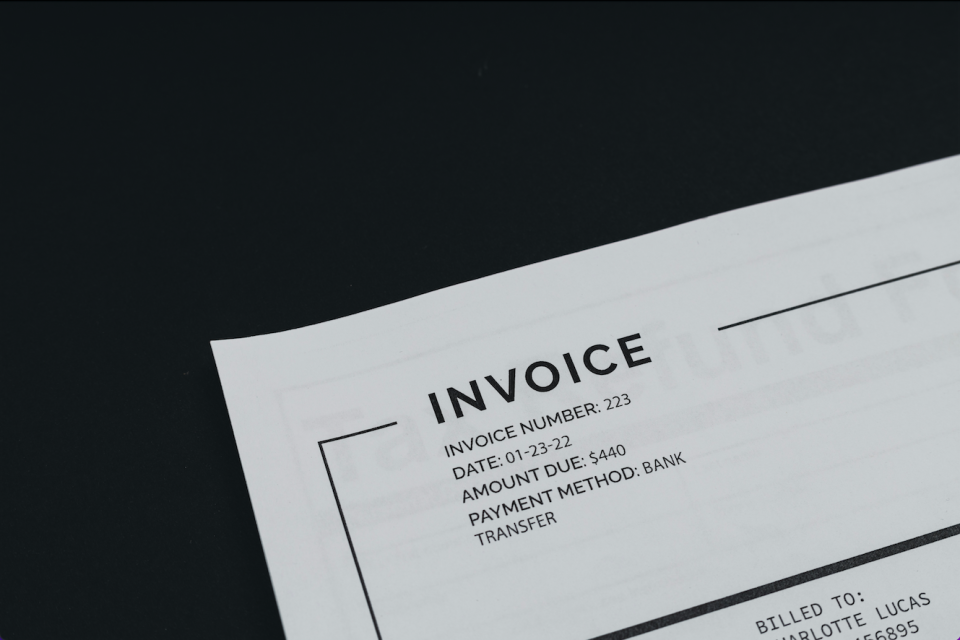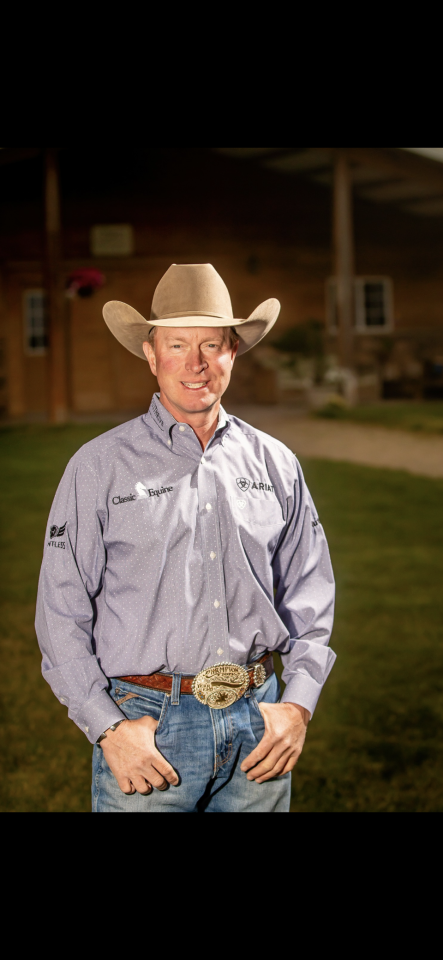Sometimes life requires you to pivot your career. Here are three NRHA Professionals who’ve done it with great success.
By Jennifer Paulson

Every NRHA Professional chose training horses as a career for a reason: a love for the horse. While there are many horse-related careers to pursue that include reining, becoming an NRHA Professional allows you to immerse yourself in the community and culture of the sport. As much as you love the reining horse and the sport of reining, you might reach a point in your career when it’s time to pivot away from full-time training to a different focus. One that still includes reining horses and the community you’ve come to love, but allows you to thrive in different situations, professional and personally.
This crossroads can come at any point in your career. We spoke with three NRHA Professionals who’ve successfully pivoted their reining expertise into other areas of the sport. They continue to contribute to reining in many ways, but they might not spend their days riding colts, hauling to major events, or coaching non pros.
Shane Brown built a lucrative, successful business in Elbert, Colorado, training aged-event horses, coaching youths and nonpros, and facilitating horse sales. He’s since moved to Texas and trains a limited number of horses out of another NRHA Professional’s facility.
Brent Loseke grew up in Nebraska on a cattle ranch, but always had his eyes on horses. He spent a few years focusing on aged-event reining horses, but chose to focus on 2-year-olds, starting some of the most influential reiners of today. From that first pivot, Loseke found himself with another opportunity in his path—managing and promoting stallions Colonels Shining Gun and Patriot.
Steve Ross’ voice is one of the most recognizable in our sport. Ross has trained horses since he was 13 years old, eventually working for NRHA Hall of Famer Doug Milholland for three years. Ross now focuses on pairing riders with their perfect horse match by selling reining and ranch riding horses of all levels as well as commentating major events.
Here they’ll share their insights on pivoting in four parts:
Part 2: How to Use Your Network
Part 3: Transition With the Right Support
When to Make a Change
First things first: How do you know when it’s time—the right time—to make a major change to your career? You’ve spent years nurturing this business, and you’re passionate about reining, but something just isn’t clicking in the daily grind of training horses and coaching riders. The decision is very personal, but it can come down to a few cues.
“I never wanted to show a lot,” Ross shares. “I always loved starting and training horses, but I didn’t want to do that tough hauling schedule required to be a successful trainer. I wanted to find a way to make a living in the business without the traditional business model. The challenge for me was finding a way to make that work. For a long time, it was buying yearlings, starting them, and selling them as 2-year-olds.”
After a while, that model built Ross a solid reputation and gave him clout with his fellow professionals. It opened the door for his current business focus: selling horses.
“We had a 32-stall barn in Colorado,” Brown shares. “When I had the right help, it worked. For 15 years, I had an assistant who helped me make it all feasible. Now, I’m 54 years old. I figure I can train and show horses another 15 years, but not with the 32 horses in our barn that pay our mortgage. We lived on our place almost 17 years, paying the bills with 100% showing, training, and sales. These days, when we take 26 or 28 horses to a show, I’m physically beat at the end of each day. I physically can’t do this the rest of my life.”
That realization was key to Brown and his wife’s decision to relocate and refocus. He and Stacey were already considering some kind of change.
“After riding 16 horses a day, five days a week, I started to get burned out,” Loseke relates. “You heal a lot faster when you’re young. I got bucked off a few years ago and had a concussion and some broken ribs, which also contributed to my decision to move into the breeding industry.”
Loseke’s new endeavor started with helping promote NRHA Two Million Dollar Sire Little Joe Cash. Loseke says he’d always been involved in breeding on the mares’ side and never really considered standing stallions, but after speaking with his veterinarian for advice, it seemed like a smart move that he could learn a few lessons and be successful.
Read the rest of this article at the links above.



